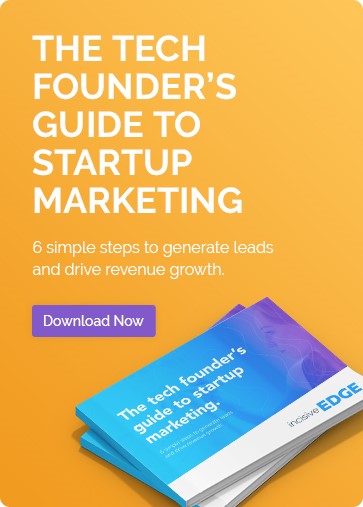To expand the audience for your business website and foster customer loyalty, it's essential to improve your organic search results. One effective approach is to focus on local search trends, connecting with local communities. By understanding and catering to the unique needs and interests of local consumers, businesses can build stronger relationships within their local community.
Leveraging micro-moments, AMP pages, and voice search enhances the user experience, making it easier for locals to find and engage with your brand. Engaging with local influencers adds a personal touch to your marketing efforts, as these influencers often have a significant impact on the preferences and behaviours of their followers. This holistic strategy not only increases visibility within the local market but also establishes a genuine connection with the community, ultimately contributing to long-term customer loyalty.
Check out the following articles to learn more about inbound marketing strategy:
- Top Marketing Trends to Follow in 2023 for Success
- Future Insights: 3 Bold Content Marketing Predictions
- The Changing Landscape of AI Marketing in 2023
So let’s take a look at how you can capitalise on the local marketing trends for SEO.
Micro Moments
What exactly is a micro moment?
According to Google, they might just be one of the most important factors in driving customers to your site.
Basically, a micro moment is when a prospective reader or customer uses their smartphone or computer to search for something. These are usually categorised as “I want” moments, such as:
- “I want to know”
- “I want to do”
- “I want to go”
- “I want to buy”

Source: Search Engine Land
91% of people generally turn to their smartphones when searching for these kinds of things. 65% of people are looking for the most relevant content to their query, no matter the source.
So, how can you optimise these micro moments?
To improve your website's ranking in search engines, it's important to focus on local SEO and marketing strategy. Specifically, consider how Google ranks webpages in SERPs by prioritizing those that provide detailed answers with minimal clicks. You can optimize your content by keeping it simple and to-the-point and organizing your answers in a single blog post. Additionally, creating helpful FAQs and tutorials can also boost your search engine ranking and encourage customer feedback, improving your overall digital marketing efforts. Engage with local organizations to strengthen community ties and gain insights for continuous enhancement.
Voice Search
Gone are the days where you actually have to type in your search terms. Amazon Echo, Google Home devices, Siri, Google voice search, and Microsoft Cortana have made voice searches a powerful tool.
And people are utilising these features regularly, too.
In fact, more and more users are conducting searches through voice rather than typing on the screen. However, users have become used to typing as few words as possible in a search bar. Voice searches though, tend to be more conversational, making phrases longer, and accordingly, search engine optimisation is important for these keywords.
So, how do you optimise for voice searches?
One piece of advice is to think conversationally.
When optimising your business website for search engines, it's important to keep your local market and customers in mind. To do this, consider the types of questions your local customers frequently ask over the phone or in chat. By incorporating these statements and questions into your website's content, you can better optimise for local searches and increase local awareness. Additionally, running local awareness ads can also help boost your visibility among local customers and improve your overall digital marketing efforts.
Another area to keep in mind is that voice searches tend to be more specific than typed keyword searches. Instead of searching simply for a recipe for vegan lasagna, voice searches tend to want a recipe for vegan lasagna cooked in a crock pot, as an example.
Offering quick, succinct answers to these questions will help to optimise your blog for these searches.
Proximity as Ranking Factor
To rank higher on Google and reach your local audience, it's important to employ local marketing strategies and optimise your online presence for local search. This includes optimising your blog content for micro moments and ensuring that your business information is up-to-date and accurate on social media platforms.
Additionally, by strategically implementing local store marketing and local online marketing, tailored to the preferences of your target audience, you can enhance your visibility among local customers. Consider hosting or participating in local events within specific local markets to create meaningful connections. These initiatives not only contribute to boosting your local search rankings but also amplify your exposure to potential customers in the area. By aligning your marketing strategies with the characteristics of your target audience, you can effectively improve your local search ranking, ensuring that your business resonates with and reaches more customers in your immediate vicinity.
Reviews
While proximity may be a major factor when it comes to local searches, one should not discount reviews.
In fact, when it comes to organic local listings, reviews are the more important ranking factor.

Source: Yotpo.com
Reviews are important because they provide social proof that your product is good. 88% of customers will read reviews to determine the quality of a local business or the product they are looking to buy.
While Google Reviews gets a big slice of the pie, Google does utilise reviews from other sites such as Yelp and TripAdvisor, so these cannot be discounted as irrelevant.
In fact, having reviews that match up on other sites as well as Google, only improves your ranking.
Mobile First Index
We’ve already established that a great majority of searches are coming from a mobile device. Thus, optimising for mobile searches is a must if you want to increase your SERP ranking and traffic.
Websites that are optimised for mobile access will go a long way towards raising your site visibility and user visits. Mobile searches are so important that Google is going “mobile first.”
What does this mean?
In a nutshell, it does not mean that Google will begin ranking websites that are mobile-friendly higher than sites that are not optimised for mobile devices.
What it does mean is that if you have both a mobile and desktop-friendly site and your mobile site has less content than your desktop site, your mobile site will be considered your primary site. This can impact both your customers and readers’ impression of your blog or your brand.
The takeaway here is that you will need to optimise your content to be available and easily accessible for mobile devices, even if you do so on a separate site.
AMP Pages
Tying in with the mobile trend, we have Accelerated Mobile Pages, known as AMP.
AMP is coding that allows a site to load quickly on a mobile device, which can be clunky, with slow response times. AMP will affect SEO in two ways:
- Ranking
- “Fast” designation on SERPs
Think of it like this: since many searches are now conducted on mobile devices and many of those searches are not connected to a wifi access, they are using data. Depending on where a person is and their plan, it can either be blazing fast or agonizingly slow.
The sites that are thought to benefit the most from AMP are sites that produce actual content, ie: blogs, news, and update sections of sites.

Source: TechCrunch
By installing the AMP Wordpress Plugin to your site, activating it and updating your htaccessfile using a program such as Filezilla, you can optimise your Wordpress site for AMP.
Whether selling your product or or simply offering your thoughts on current events, your business blog is an important part of reaching your customers and audience. Knowing how to optimize your site is necessary to obtaining the ranking, reviews, visitors, and customers you want.







